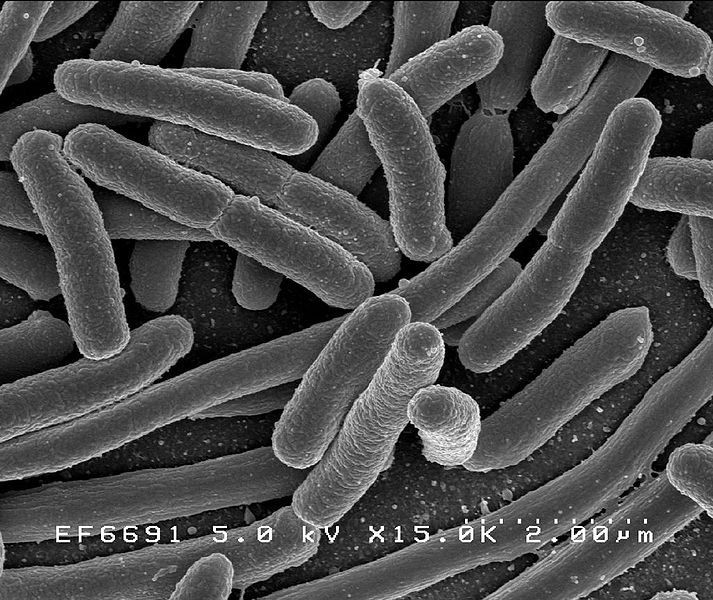E.coli Bacteria Linked to Colon Cancer

E.coli bacteria that carry specific genes can spur the development of colon cancer, University of Liverpool scientists have found.
A study conducted on mice with colitis, a swelling or inflammation in the large intestine (colon) area, revealed that E.coli bacteria that carry so-called 'pks genes' can encourage the development of colon cancer.
The study found that pks-carrying E.coli can introduce a toxin that damages DNA in the cells of the gut lining, thereby causing colon cancer. They also found that E.coli bacteria that do not carry the pks gene did not produce cancer in mice.
"The fact that the pks-positive E.coli seemed to promote colon cancer in mice without causing increased inflammation led us to investigate its possible role in human colon cancer. The marked increase in the presence of these bacteria in the colon, not only in patients with inflammatory bowel disease, but also in patients with colon cancer who do not have inflammatory bowel disease, suggests that damage caused to DNA, as a result of the toxin that the pks genes produce, may promote the development of colon cancer," said Professor Jonathan Rhodes, researcher at the University's Institute of Translational Medicine.
Previous studies had found that people with colon cancer, inflammatory bowel diseases, Crohn's disease and ulcerative colitis tend to have high amounts of pks-positive E.coli in their colons.
According to the researchers, approximately two-thirds of patients with colon cancer carry such bacteria, compared with one in five with a healthy colon.
"The research suggests that E.coli has a much wider involvement in the development of colon cancer than previously thought. It is important to build on these findings to understand why this type of bacteria, containing the pks genes, is present in some people and not others," said Dr Barry Campbell, a researcher at the University of Liverpool.
© Copyright IBTimes 2024. All rights reserved.






















